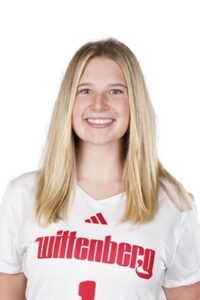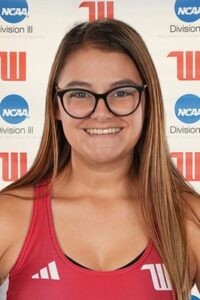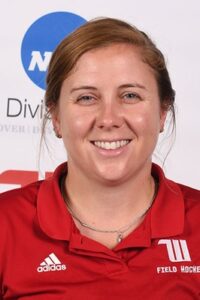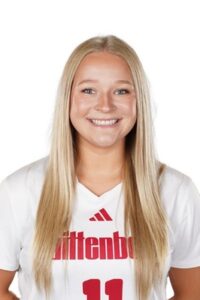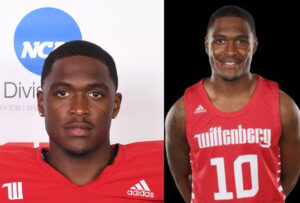As I held my thumb on the image, I imagined him striding into the theatre, Eddie Murphy dressed in a black suit, accompanied by a red tie and a gold necklace hung about his chest. His gray animal-like fur draped across his shoulders would sway as he walked. He’d reach the counter and the theatre employee would ask the question that I read from the meme on my phone, “What movie are you seeing today?” He’d look at the employee with a fierce intent and reply, “You know why I’m here.”
The weekend of Feb. 16 was a historical event for all those of African heritage. The movie “Black Panther” was released, unleashing a worldwide celebration of black culture. And not too long after Eddie Murphy graced our timelines did people began to post pictures of themselves at a theatre in their best African royal wear, with the hashtag “#WakandaForever.”
“Black Panther” grossed $361 million and it scored 97 percent on Rotten Tomatoes during its first week. But this movie was about more than just ratings. It was a movie where the black characters hadn’t died before the end, where female black women were celebrated in strength and independence, and where black people were represented positively in a modern film.
And I was here to witness it– in a burgundy knit sweater and a pair of jeans.
I say this jokingly, but I blame my sister. I had no idea that we’d see “Black Panther” that weekend, or that we’d be seeing this movie twice. But I left through the back of Tower Hall on Wittenberg University’s campus without an article of African clothing and a huge smile on my face. I was finally able to visit my sister, Aliya, at The Ohio State University.
I was in need of a weekend like this and the timing for a getaway was divine intervention. Aliya and I had been planning a visit since school started last fall. This is her first year at Ohio State where she studies social work and minors in substance abuse and addiction. Our planning began when she found the church Hope City House of Prayer. She had been sending me recordings of their praise and worship and of the pastor’s sermons for weeks, and so we vowed to find a way to get me there. Seeing that we were 30 minutes away, we bugged family members and friends for months, until Thursday I received the message, “Stop everything!” One of Aliya’s Bible study friends had offered to pick me up. I couldn’t breathe and after receiving the news, we squealed at each other for an hour through feverish texts.
Aliya hopped out of the car and gave me a hug, rocking and bouncing. We placed my bags in the backseat and I was introduced to Alexandria “Alex” and Briauna. Alex was tall and slender, her skin reminded me of the color of a sugar cookie. Briauna turned from the passenger’s seat and greeted me over her left shoulder. She had a round face like my sister’s and a smooth dark complexion, her doe eyes welcoming and friendly. As we pulled out of the parking lot, Aliya and I grinned at each other, pounding our fists together as if giving multiple fist fives. “We did it!” Aliya said, her smile squeezing lines in the outer corner of her eyes.
During the ride, Aliya informed me of the night’s activities. We’d be going to prayer service and maybe later seeing “Black Panther” at the theatre. I was mostly excited for the movie. I wasn’t in the praying mood and I thought I’d be more prepared mentally for church by Sunday. Yet, when we arrived, I found that it was okay to come to church when you’re not okay. When we walked into the door, there were people standing there waiting to give a hug and a genuine smile.
“This is my sister!” Aliya said, and would say the rest of the time we were there. I met so many people who hugged me as if I had been there for years. My sister had been going to prayer service, Bible study and Sunday service every week for the past six months. I could see why.
Aliya walked swiftly into the sanctuary and I followed her, her enthusiasm leading us to the second row from the front. I felt awkward being so close, but by the end of service, it wasn’t a problem. We were asked to get into a group of three or four. My sister and I formed a group with two other girls whom I had just met. We held hands and by instruction, in light of the shooting that happened in Florida, began to pray for the nation as a whole. After about 15 minutes, the pastor began speaking and said that he felt that there were some people in the room who were in need of restoration—and my heart stopped.
“If that’s you, I want you to raise your hand,” he said. My heart began and stopped again, my eyes still closed.
“Don’t worry about who is around you,” he said. I waited a second, and a second more, thinking about how my week had been and how my life had been the past few months. How I had felt a tight grip around my neck, and how each day it would get tighter as I walked around Wittenberg’s campus with a smile on my face.
I let my hand rise.
The two girls in my group came closer and laid their hands on my shoulders. Aliya stood on my left side still holding my hand. They took turns praying, and the more they prayed, the more I cried. I listened to their words, people that I didn’t know who without prior knowledge were praying for the right things.
I wasn’t in the mood to pray, but this time I didn’t need to pray words—I needed to cry them.
****
We arrived at the dorm in Sibert Hall close to 11:30 p.m. After meeting some of Aliya’s friends, I sat in the room thinking about service, how timely it was that I would visit this church when I needed to, how we were greeted at the door, how engaged the worship leaders were and how, by the time I left, I felt like a new person surrounded by new family.
I was pulled away from my thoughts, hearing that it was time to start walking to the theatre. Our tickets were ordered online, and we were set to see the movie at midnight. We left the hall, me in my burgundy knit sweater, Aliya in jeans and a black shirt that said “Nah. -Rosa Parks.” Walking down the sidewalk, I was feeling free, my mind, again, fixated on my experience at Hope City. We continued up the street, past another hall, the pub on our right, the drunk guy on the side—the drunk guy on the sidewalk? He was rolling back and forth on his back, his feet halfway in the air like a dog playing dead. The woman I assumed to be his date was scrambling to get him up. He didn’t make it easy for her, and when he was on two feet, he pulled her into a hug. She began to laugh and was able to move him off the sidewalk.
“Guys, I’m going to take him home!” she called to her friends as we inched by, still locked in his hold. In between her words, the man was shouting and not speaking much English.
We made it to the Gateway Theatre, security posted at the door directing everyone to the correct line. There were stairs that led to the ticket counter and an odd place that looked like it could be a club. It was crowded, but that didn’t stop us from seeing just how serious this movie was to people. One man had on a suit, the rim of the sleeves printed in yellows, greens and reds with an African pattern. His hair was dreaded and styled to one side, curving like a water fountain. But don’t get me wrong. He made it work.
When we got closer to the counter, I saw a woman who had on a beautiful skirt that hugged her waist and flowed out at the bottom in waves of reds and yellows. Her hair was cut short in a mini afro, her skin dark and smooth.
We reached the front counter and the man asked us what movie we were seeing. I thought of my sister’s shirt. Really? “Nah. Not really,” I imagined Rosa Parks had said.
Though people came with elegance, others took dressing up to another extreme.
A masked figure stood casually on the third level of the theatre. He leaned against the railing, now being viewed by a crowd of people below. When he heard the commotion, he turned around and bent his head low toward the cameras and held up a paw, large and black, revealing his white almond-shaped claws. Before seeing the movie, we had already met the Black Panther.
With hearts pounding, we rushed to the ticket taker who ripped a section of our tickets off, making a sound similar to the snatch of Velcro.
The seats filled up fast. People were coming in staring at the top of the theatre, scrunching their faces at the lack of room. It had gotten so tight, that we watched from the row behind, as a lady with wide hips scooch past impatient feet and lapped up with her friend. The boy sitting next to them crossed his arms and stared straight ahead.
When the lights began to dim, we sat with our heads back against the seat, already proud of a movie that was just beginning. Seeing people of my skin color in a film that highlighted who we are, and were doing it well, was a feeling familiar to the way that the people at Hope City wrapped their arms around me. Though they were strangers, they were still family.
And on our way out of the theatre, my sister motioned for me to lock arms with her, and we walked side by side.
#WakandaForever#


